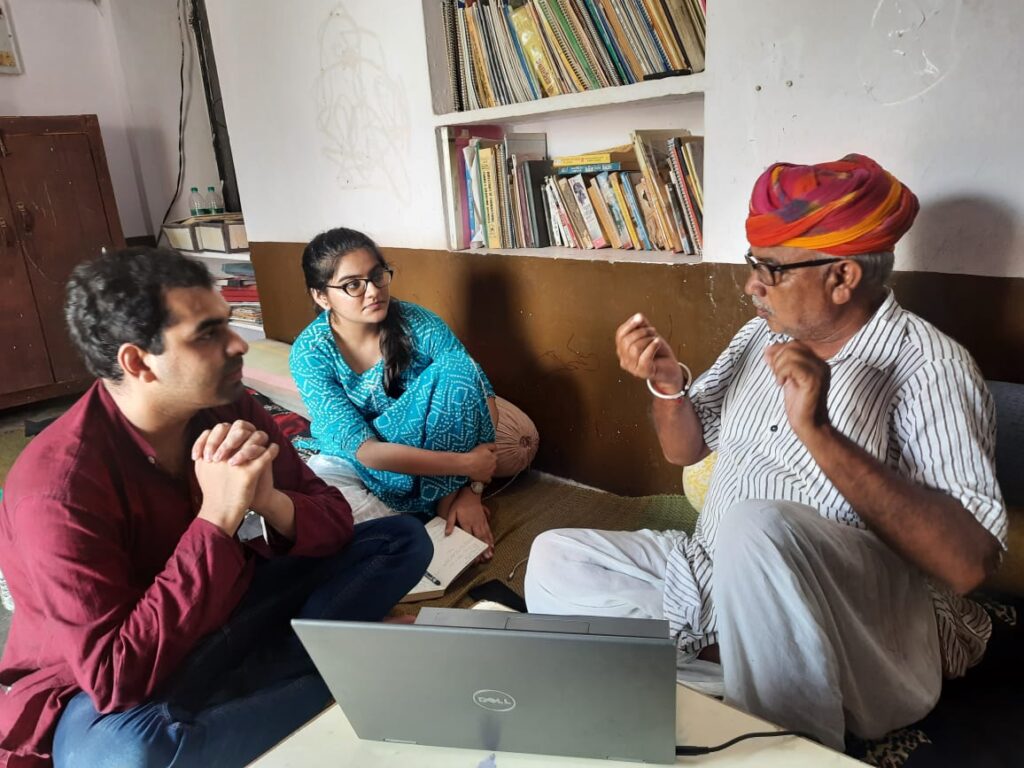It was early evening and we sat down to discuss some important matters related to the upcoming project. Sitting on the ground, over a cup of tea, we started running through a presentation with Teja Ram Ji, the founder of Manthan Sanstha in Kotri. As we went through the presentation, he started narrating the stories behind each slide.
One such story was about a community workshop on the importance of saving water. So what happened in that workshop? It went well, some great points were made. Those points are valid in theory which are generally repeated time and again in books, papers, blogs and case studies. But, it didn’t seem to connect with the community members. Why?
Because the content shared was valid in the world of the presenter, not in the world of the villager.
For someone who has to fetch water after walking 2 kms one way, how could one possibly explain the importance of saving water? Would they not be valuing each and every drop?
The workshop was eventually a success where villagers engaged in a healthy conversation about their lifestyles and what they could do. But this story left us wondering about preconceived notions, which knowledge is generally valued and the importance of local context!
Acknowledging different realities
As development practitioners, social workers or even researchers, one of the key insights from the story we would like to share is about respecting knowledge. Knowledge of all kinds, irrespective of whether we attained it in a school, or a college, a book, a village or from some ritual. At times, we find ourselves so focused on sharing the knowledge we have gained that we forget to value the existing knowledge of those we are working with. No matter whether the knowledge sharer belongs to a marginalised community or an elite college, their knowledge is valuable.
Breaking the shackles of our limited and confined opinions that we make without experiencing someone’s reality is a constant struggle of unlearning and relearning that we must engage in. Let us be open and ask questions instead of assuming someone’s reality and let us think beyond our preconceived notions. Let us seek these new realities and bring them to the forefront to be communicated in our work and bring about change that lasts.


All the best!
-Praveen
This notion of shared knowledge, an ecology of knowledges, that values all sources of knowledge is fundamental to effective engagement – I was pleased to read this underscoring of that point here. Bravo all involved
Maf